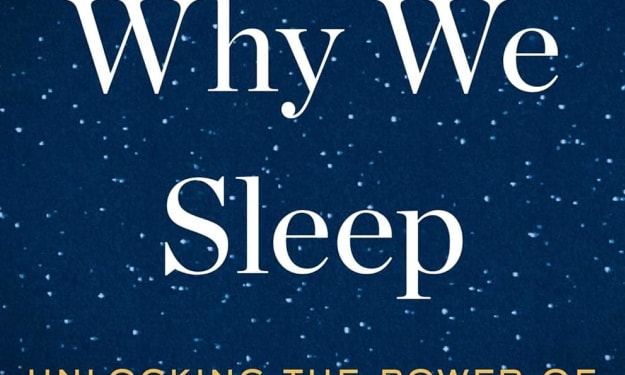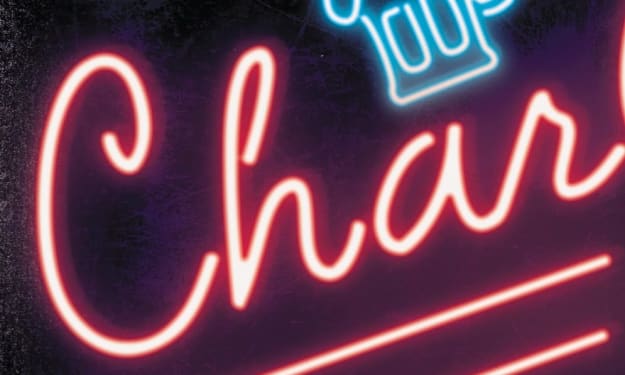
Annie Kapur
Bio
200K+ Reads on Vocal.
English Lecturer
🎓Literature & Writing (B.A)
🎓Film & Writing (M.A)
🎓Secondary English Education (PgDipEd) (QTS)
📍Birmingham, UK
Stories (1982/0)
The Haunting of Hill House by Shirley Jackson
Shirley Jackson was one of the foremost writers of 20th century horror with praises ranging from the everyday reviewer like myself all the way to legendary horror author Stephen King. ‘The Haunting of Hill House’ is one of the seminal works of 20th century psychological horror with a frame narrative that encompasses all the horror embodied by the main character - Eleanor. Apart from that, we have the researcher, the bohemian artist and the unlikeable heir to the house. As we move through the story, we learn secrets about everything from something the happened involving a hanging and the library holding a book written in blood. As we are reminded that ‘whatever walks in Hill House walks alone’ we are also invited into a book, published in 1959, that went on to become a foundational piece of horror writing and inspired an entire generation.
By Annie Kapur24 days ago in Geeks
Book Review: "Among the Trolls" by Marianna Spring
Full Title: Among the Trolls: My Journey Through Conspiracyland by Marianna Spring Marianna Spring has written her debut investigatory book into the world of conspiracy theorists and strange online beliefs, what spurs them on and why they even exist. She defines and investigates each separate theory with wit and research, giving the reader an in-depth view of the world inside these people who believe the strangest and most outlandish things. Be that as it may, she finds that these people are not all bad people in a lot of ways, but instead are people who fear that the changing world is out of their control or understanding and require someone to blame for things going upside-down. The anxieties of conspiracy theorist groups find schemes and evil plans in every facet of life and thus, spiral down further and further into a rabbit hole of oddity.
By Annie Kapur25 days ago in Geeks
Book Review: "Why We Sleep" by Matthew Walker
You do not know how sleep deprived you are when you are sleep deprived. - Why We Sleep by Matthew Walker As someone who tends to have more bad sleeps than good ones, I looked into a book entitled 'Why We Sleep' by Matthew Walker to hopefully get some good tips on how to improve my sleep health. I quite possibly got a few that I can implement to some degree. But what I got first was a frightening prospect that my issues with sleep are pretty much going to work entirely out of my favour if they haven't been doing so already. Things like pouring cereal two times into one bowl, accidentally putting on two different socks and even down to packing the wrong stuff in my bag, these might be minor things that result from a lack of sleep - but I have learnt that they can have dire consequences. As someone who enjoys their time awake at night and believes that a few hours less could not do me worse - this is an eye-opening revelation that a few hours less isn't only harmful, it's deadly.
By Annie Kapur26 days ago in Geeks
Book Review: "Ham on Rye" by Charles Bukowski
“The problem was you had to keep choosing between one evil or another, and no matter what you chose, they sliced a little more off you, until there was nothing left. At the age of 25 most people were finished. A whole goddamned nation of assholes driving automobiles, eating, having babies, doing everything in the worst way possible, like voting for the presidential candidate who reminded them most of themselves.” - Ham on Rye by Charles Bukowski
By Annie Kapur27 days ago in Geeks
Book Review: "So You've Been Publicly Shamed" by Jon Ronson
I started reading So You've Been Publicly Shamed and my brother also recommended that if I am to read a Jon Ronson book then I should listen to it as well. Honestly, I cannot stand his voice, it's too slow and droning. But here we are. The book is actually really good but would have been better without his narration.
By Annie Kapur28 days ago in Geeks
Book Review: "The World and All That It Holds" by Aleksandar Hemon
The Holy One kept creating worlds and destroying them, creating worlds and destroying them, and then, just before giving up, He finally came up with this one. And it could be much worse, this world and all that it holds. - The World and All That It Holds by Aleksander Hemon
By Annie Kapur29 days ago in Geeks
Book Review: "Martyr!" by Kaveh Akbar
“For our species, the idea of art as ornament is a relatively new one. Our ape brains got too big, too big for our heads, too big for our mothers to birth them. So we started keeping all our extra knowing in language, in art, in stories and books and songs. Art was a way of storing our brains in each other’s. It wasn’t until fairly recently in human history, when rich landowners wanted something pretty to look at in winter, that the idea of art-as-mere-ornament came around. A painting of a blooming rose to hang on the mantel when the flowers outside the window had gone to ice. And still in the twenty-first century, it’s hard for folks to move past that. This idea that beauty is the horizon toward which all great art must march. I’ve never been interested in that. “As heaven spins, I fall into bedlam.” - Martyr! by Kaveh Akbar
By Annie Kapurabout a month ago in Geeks
Animal Farm by George Orwell
Satirical. Allegorical. Unbelievable. How ‘Animal Farm’ by George Orwell escaped the hammer of British censorship in 1945 is seriously beyond me. Orwell first penned the book between 1943 and 1944, the novel taking about three or four months to write and the fact that the UK was in an alliance with the Soviet Union against Nazi Germany at the time did not help. The British holding Stalin in high regard frankly made George Orwell want to vomit and though the book was initially rejected by absolutely every publisher you can think of, it was eventually published. It was then a huge success and transformed the British opinion of the state of the Soviet Union.
By Annie Kapurabout a month ago in Geeks
Book Review: "The Heaven and Earth Grocery Store" by James McBride
“Moshe watched spellbound from the wings as Webb, a tiny man with a curved spine clad in a white suit, roared with laughter and enthusiasm as he played, egging his band on from the rear with his masterful drumming, the thunderous band shaking the floor with rip-roaring waves of gorgeous sound. That man, Moshe decided, was a joymaker. And Moshe could not help but notice that Webb, like his lovely Chona, had a physical disability. Though he was a hunchback of some kind, he moved with a certain feeling of joy, a lightness, as if every moment were precious.” - The Heaven and Earth Grocery Store by James McBride
By Annie Kapurabout a month ago in Geeks
Book Review: "Dopamine Nation" by Dr Anna Lembke
I found this book whilst reading a book called ‘Bad Therapy’ by Abigail Shrier (which I loved, thank you for asking) and I thought it sounded pretty interesting to begin with. No, it is not a perfect book and in some ways I can actually see how this book is probably not as great as advertised. There were not many reviews I could read and a lot of it is based on personal experience rather than actual data. Be that as it may, it is still an interesting read in the day and age of dopamine chasing and constant requirement for stimuli. Even though some of the reading might be almost obvious and some of the comments about ‘mindfulness’ actually working seem patronising to the reader, this is still a book with slightly more positives than negatives.
By Annie Kapurabout a month ago in Geeks
Book Review: "Why We Die" by Venki Ramakrishnan
To be perfectly honest with you the reason I decided to read this book is because Stephen Fry said it was good. A lot of what Stephen Fry says is good is very rarely bad and so, I trust his judgement of what constitutes as a 'good' book. I had only momentarily heard of the author of this book as obviously, being a Nobel Prize Winner but if I were to tell you that I knew why he won it or even for which science, I would be lying - I had no idea. All I knew is that he did win it and that's where my knowledge ended.
By Annie Kapurabout a month ago in Geeks
Book Review: "Bad Therapy" by Abigail Shrier
I have to be honest with you. I was actually just doom-scrolling through Kindle books when I came across this. I have never actually heard of it nor have I heard of the author but the premise of the book sounded pretty exciting. I guess you could count this as my ‘random book of the week’. It is about how Generation Z and to many extents, Generation Alpha are the most coddled, protected, loved generations, how they have had unlimited access to therapy and (more than any generation in human history) and have thus become the most mentally unstable generations ever seen. The question that the author poses is not ‘how do we blame this on the kids?’ But it is instead a more nuanced problem of parents putting their hopes in the psychologists who don’t always have the answers and, as I have come to understand, don’t always have the best intentions of the child in mind. So why has the most coddled generation in human history become the most mentally unwell? The reasons are actually pretty shocking in themselves and some, I could not believe were actually true.
By Annie Kapurabout a month ago in Geeks













